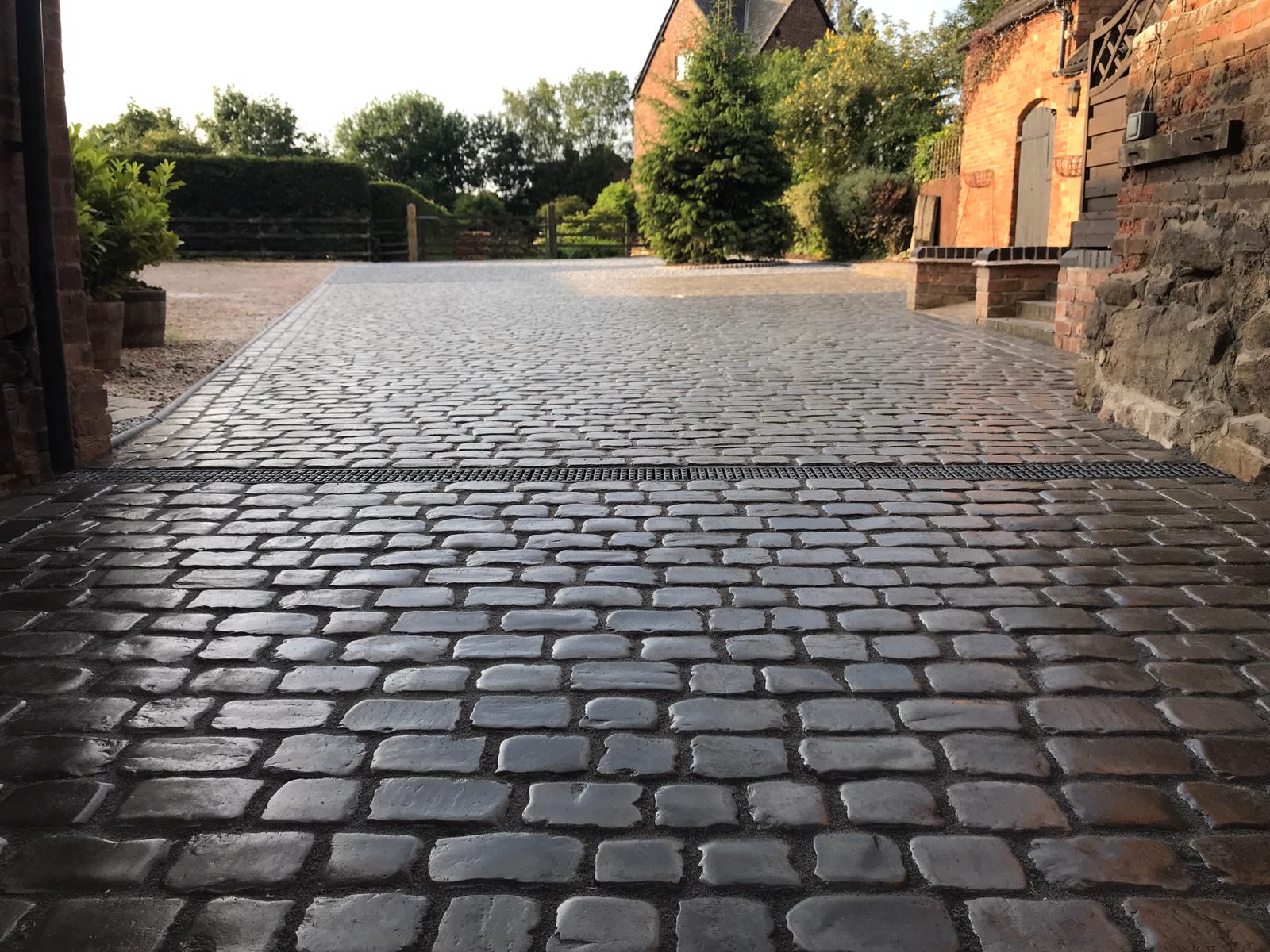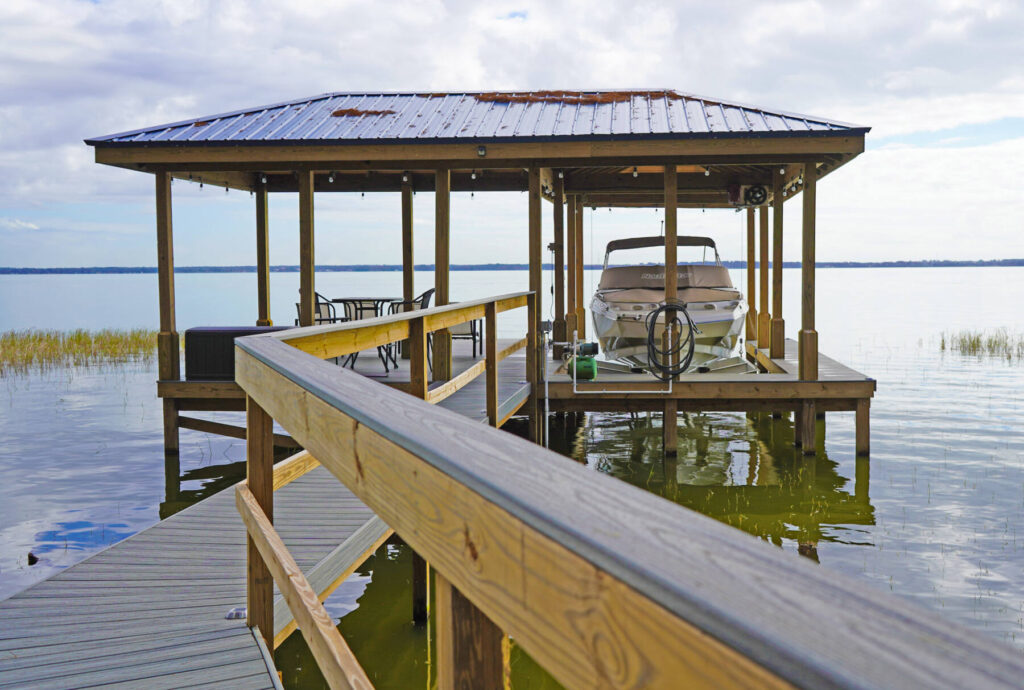Choosing the right driveway pavers will help you create a high-end aesthetic that enhances your home’s curb appeal. To start, consider your architectural style and choose a material that fits with the look you are going for.
Driveway Pavers Long Island are the most durable option for a driveway and can handle heavy vehicle weights without shifting or cracking. Brick and cobblestone are also options, but require a much thicker base to prevent soil shifts.

If you’re in the market for a new driveway or want to improve your current one, pavers are an excellent choice. They are highly durable, able to carry more weight than traditional poured-in-place concrete or asphalt. In addition, they offer a wide range of design possibilities to meet every aesthetic desire and budget.
While there are several different types of pavers, the most popular for driveways are made from clay brick or concrete. Both of these options are known for their durability and resistance to cracking. They can be crafted to achieve any look from classic to modern, and they can also provide a permeable surface that allows water to flow through to the soil beneath.
Pavers are also a good option for high-traffic areas because they’re not as prone to shifting and breaking as poured concrete. However, if you’re planning to drive on your paver driveway, it’s important to choose the right material and have it installed correctly. If your pavers aren’t properly prepared, they’ll break under the pressure of vehicles and sink into the underlying soil.
Unlike poured concrete, which is unable to shift or crack with changes in the weather, pavers allow for movement by allowing space between each slab. This means your driveway can withstand thawing and freezing without damage.
In addition, pavers are easy to repair. Should tree roots or frost heave cause a section of your driveway to shift, it’s simple to remove the affected pavers and replace them. In comparison, repairing a poured-in-place concrete driveway is a much more involved process and can cost significantly more.
While paving stones are typically more expensive than other types of driveway materials, their longevity and beauty make them an excellent investment for your home. With proper installation and care, a paver driveway can last upwards of 40 years.
When it comes to maintaining a paver driveway, weed control and regular cleaning are essential. Because weeds can grow in between the individual pavers, they must be regularly removed to prevent them from disrupting the surface. In addition, a routine sealant application helps protect the pavers from staining and the effects of freeze-thaw cycles.
Concrete pavers offer endless design possibilities for enhancing the overall aesthetic of your driveway. Available in a variety of shapes, sizes and colors, they can be arranged to complement the architectural style of your home as well as the landscaping. In addition, pavers can be designed to mimic the look of natural stone or brick for a high-end and sophisticated aesthetic.
When selecting pavers for your driveway, consider their aesthetic as well as their durability. Choosing a driveway paver with a textured finish will be more forgiving when it comes to automotive spills, oil spots and other stains that are common on driveway surfaces. Pavers with a tonal variation in color will also be more forgiving and help camouflage these marks over time.
The size of your driveway and the type of aesthetic you are going for will determine the thickness and paver shape you need to achieve the desired look. For a standard residential driveway, it is recommended to use pavers that are at least 40mm thick in order to handle the weight of vehicles of all sizes. For permeable driveways, it is preferable to use 30mm thick pavers to allow grass and other plants to grow between the pavers.
Once you’ve determined the type of driveway and paver thickness that is best for your project, you can then start to consider the various design options available. One of the most popular paver driveway designs is herringbone. This zigzag pattern creates visual appeal and can be enhanced with the use of different colors. Another eye-catching option is the basket weave, which also offers an attractive allure.
Lastly, you’ll want to consider the running bond pattern. This is one of the most traditional interlocking paver patterns, and it’s easy to install, requiring little cutting. This is a good choice for driveways with longer lengths and straight lines, as it will provide a uniform look.
Finally, you’ll want to consider whether you want to incorporate a circular or other unique paver layout. This can add an interesting element to your driveway while also directing attention towards your entranceway.
Driveways made of pavers are a more environmentally-friendly alternative to traditional concrete or asphalt pavements. The reason for this is because driveway pavers allow rainwater to penetrate into the ground underneath, which helps reduce stormwater runoff and flooding issues. Many cities enforce land-use codes that limit the amount of impervious surface area on a property, and incorporating permeable pavement is an effective way to help reduce this.
When you choose to install a paver driveway, you can select from an array of different colors and styles. These choices give you the opportunity to create a truly custom design, which is great for adding curb appeal and making your home stand out. In addition, you can opt for a pattern that adds more character to your driveway, such as a herringbone or basket weave.
Another eco-friendly aspect of driveway pavers is that they are made from recycled materials. This is true of both the material itself and the process used to make them. In addition, pavers are much less carbon-intensive than poured concrete.
Pavers are also a more eco-friendly choice than gravel or traditional asphalt, which require extra excavation and labor to install. They are also more durable than poured concrete, which can crack or break with temperature shifts. Since paved surfaces can be a lot more expensive to repair, you want your driveway to last for as long as possible.
Driveway pavers are made of interlocking pieces that form a solid surface, and they can be laid in a variety of different patterns to create the desired look. These paving stones are typically made from natural stone, recycled plastics or other sustainable materials and designed with gaps between them to enable water absorption. This reduces the strain on local stormwater management systems, which can lead to flooding and pollution problems.
Permeable pavers allow stormwater to enter the soil beneath, where natural microorganisms will break down any pollutants and purify the water. This process also prevents the stormwater from flowing into local lakes and rivers, which can cause pollution issues. The permeability of driveway pavers also allows the homeowner to save money on de-icing salt, which is a costly and harmful substance for the environment.
A paver driveway can be an attractive and functional addition to your home. However, it must be properly maintained to ensure the longevity of its appearance and structure. A regular cleaning schedule, along with occasional professional cleanings, is essential for maintaining the integrity of your pavers. This will minimize the need for major repairs and ensure that your pavers continue to look their best.
Regular sweeping removes dust, dirt, and debris from the paving bricks. This prevents weed growth and helps keep the bricks looking clean. When necessary, the bricks can be raked or power washed with a pressure washer. The power washer should be kept on a low setting and not too close to the surface of the pavers so as not to dislodge or wash out the bedding sand underneath the pavers.
If stains persist, it is advisable to mix a solution of detergent and water, then use a brush to scrub the pavers and rinse thoroughly. This process may need to be repeated for tough stains.
Once the pavers are cleaned and dry, they can be resealed. The sealant protects the paving bricks from the normal wear and tear and also helps to preserve their colors. It is a good idea to reseal the bricks at least once every 2-3 years.
While pavers are the longest-lasting paving material, they do need some maintenance to keep them in top condition. Fortunately, this maintenance is simple and relatively inexpensive. Repairing a crack or other damage is not difficult with pavers, and the interlocking system makes it easy to replace damaged bricks.
Keeping the weeds at bay is also important for a paver driveway. Weeds can grow between the bricks and pull them apart over time. To avoid this, the weeds should be killed or prevented with a weed killer or a weed prevention product. The spaces between the bricks should be filled in with polymeric sand which will help the paving stay in place and prevent weed growth.

